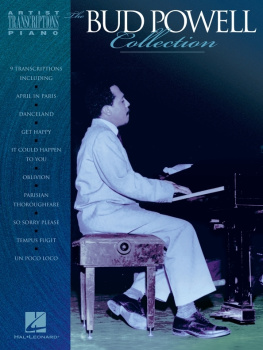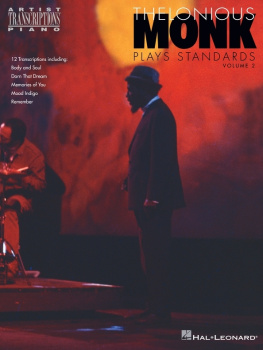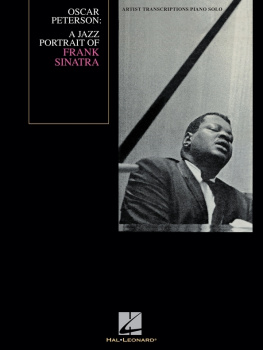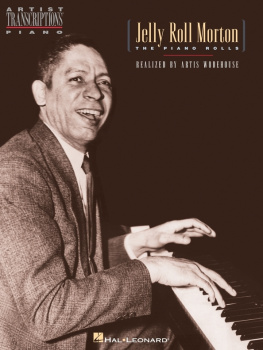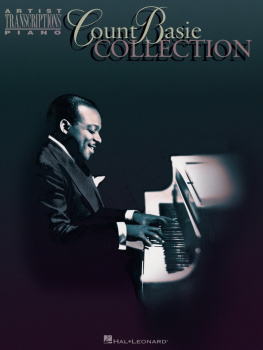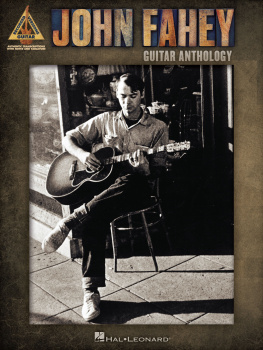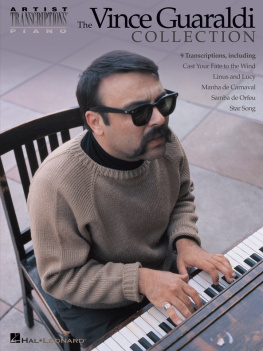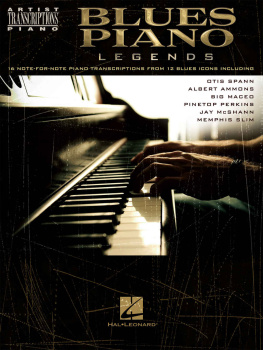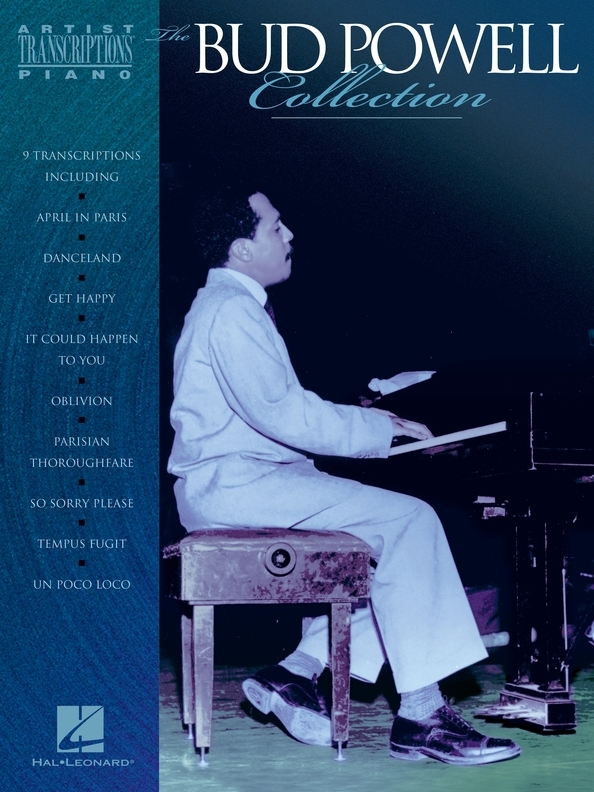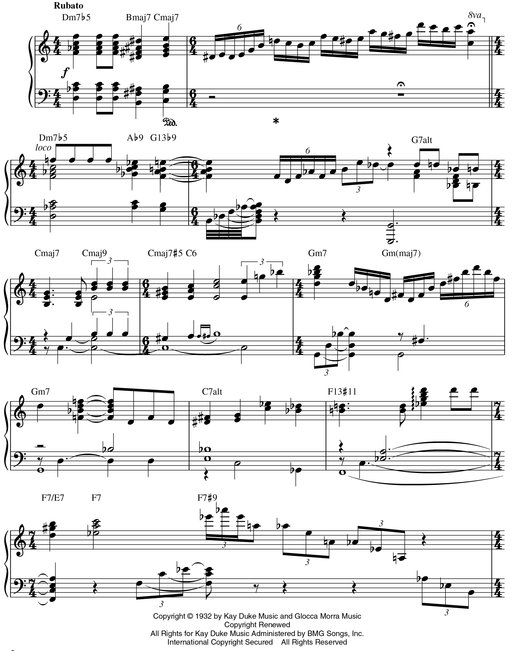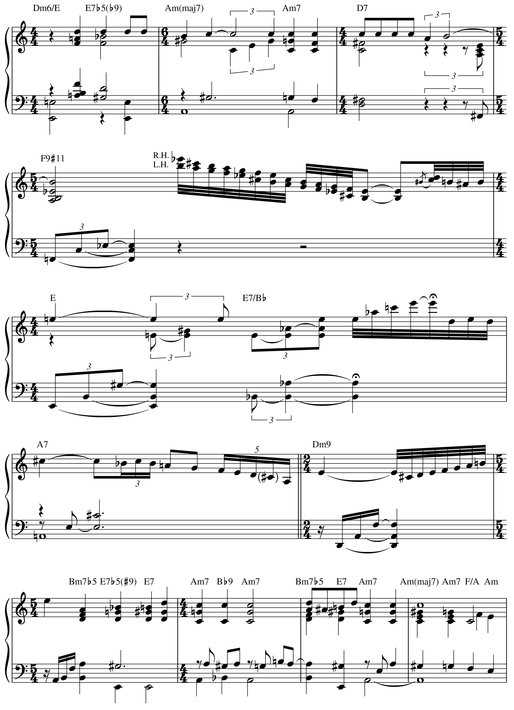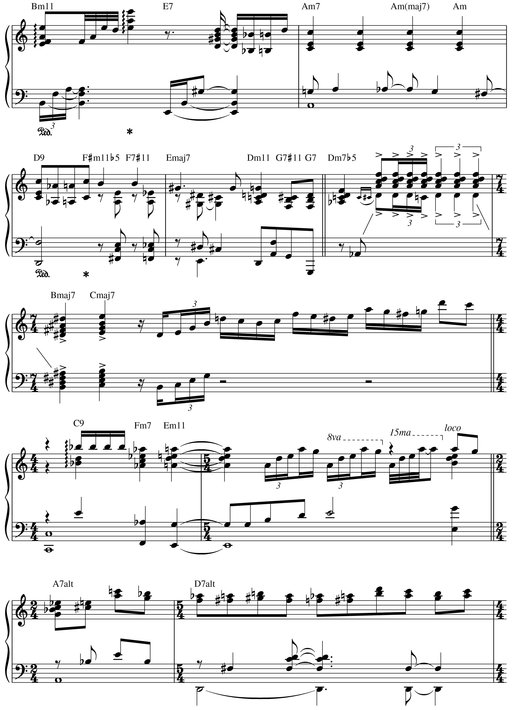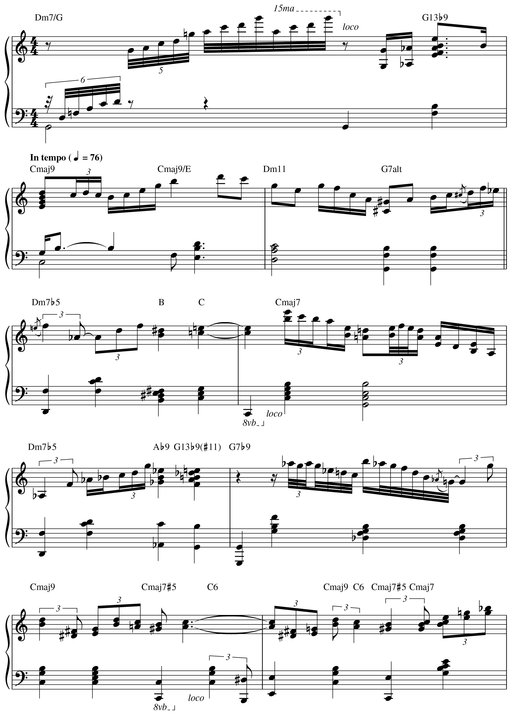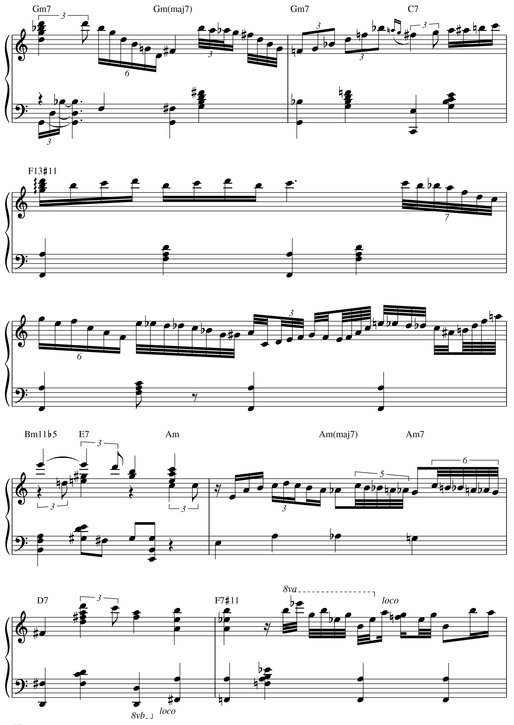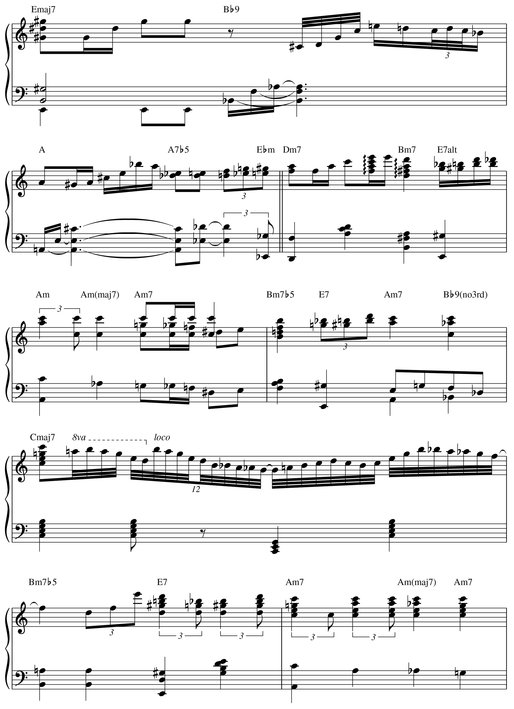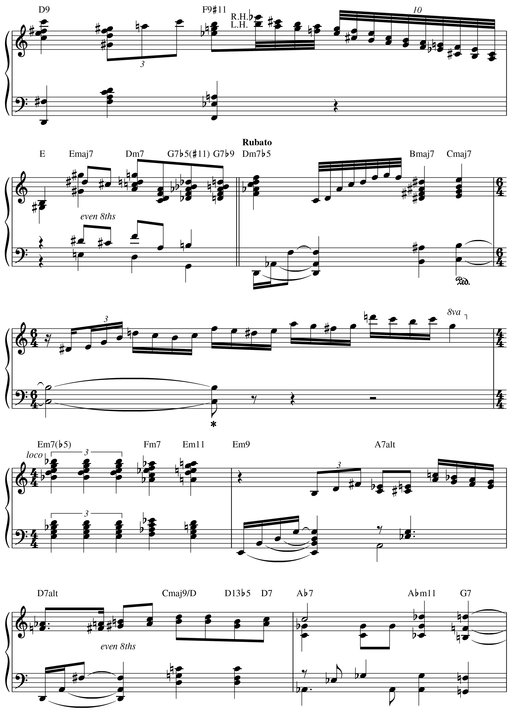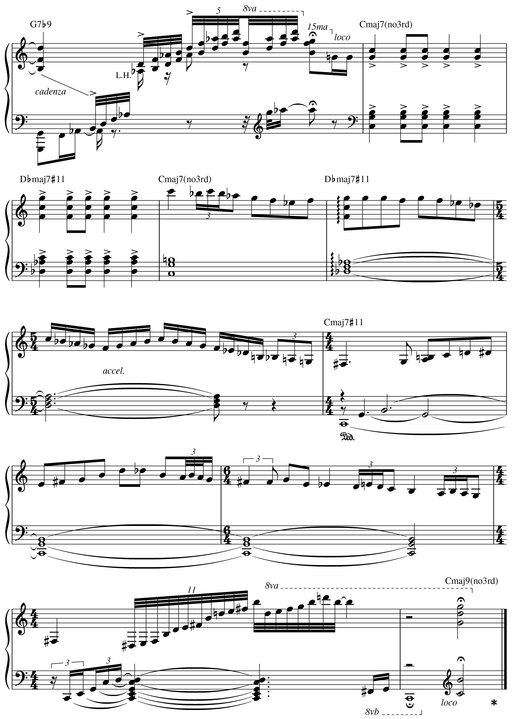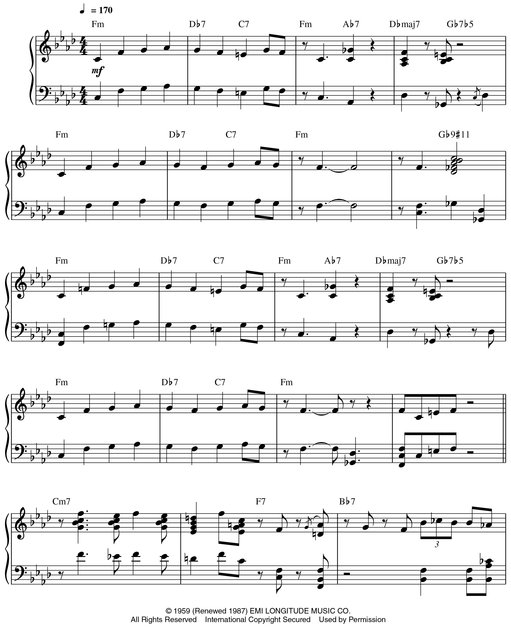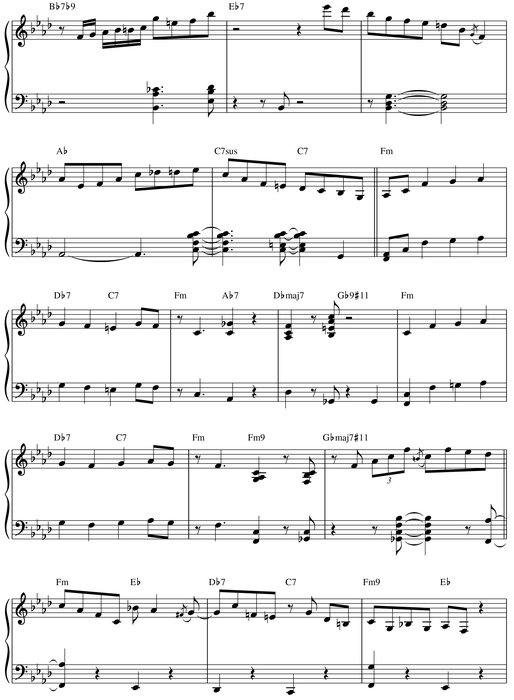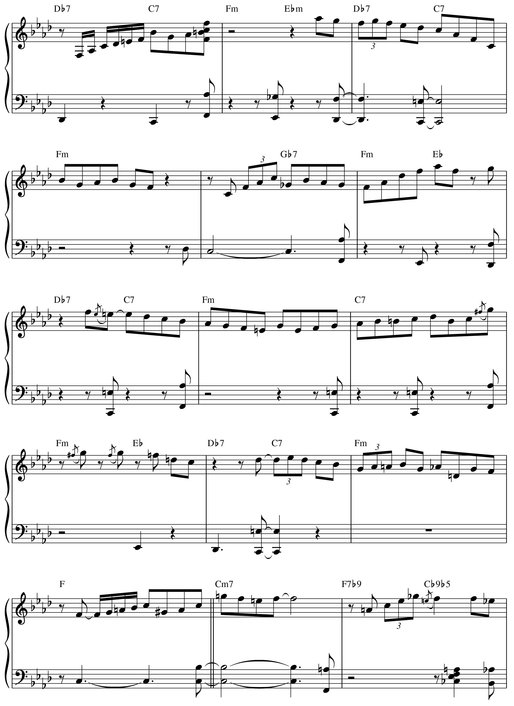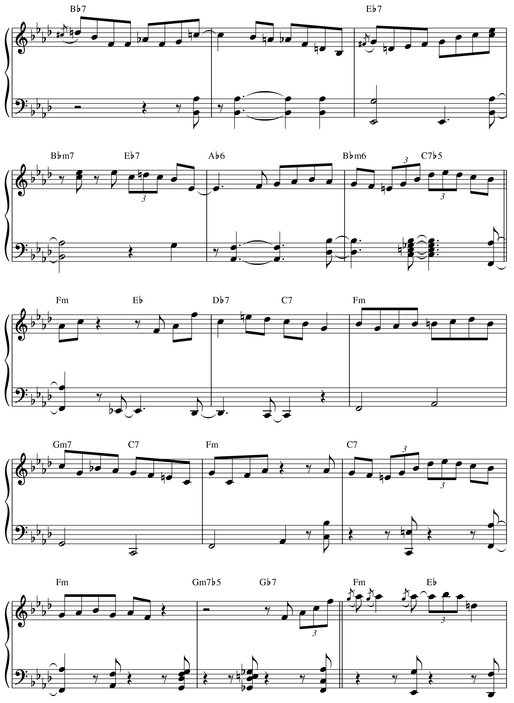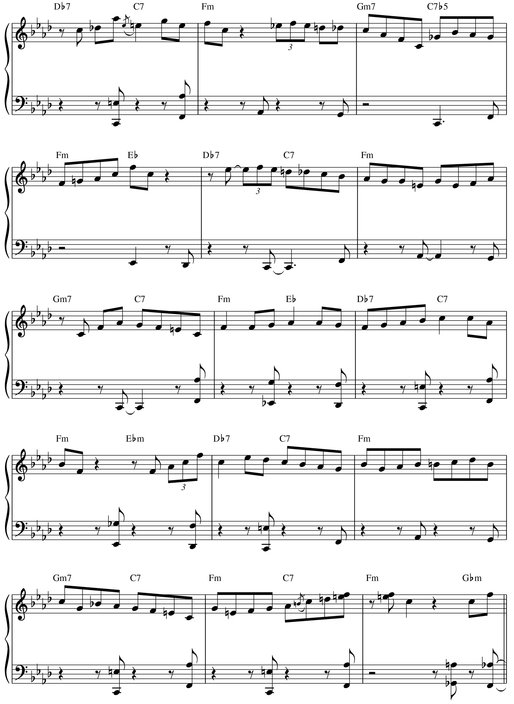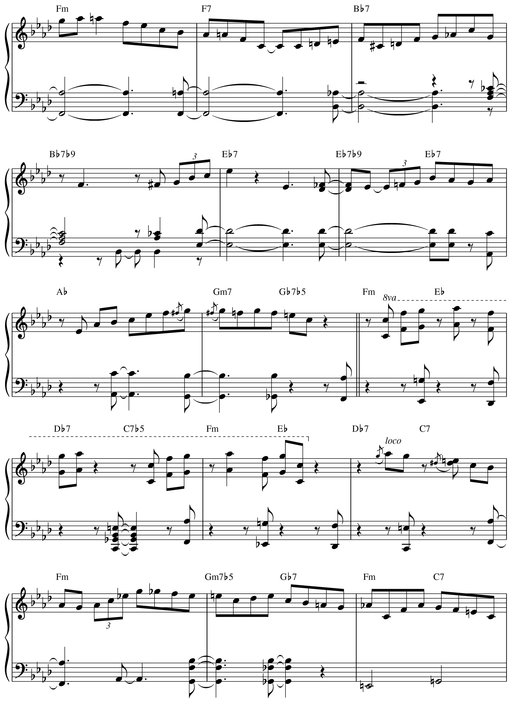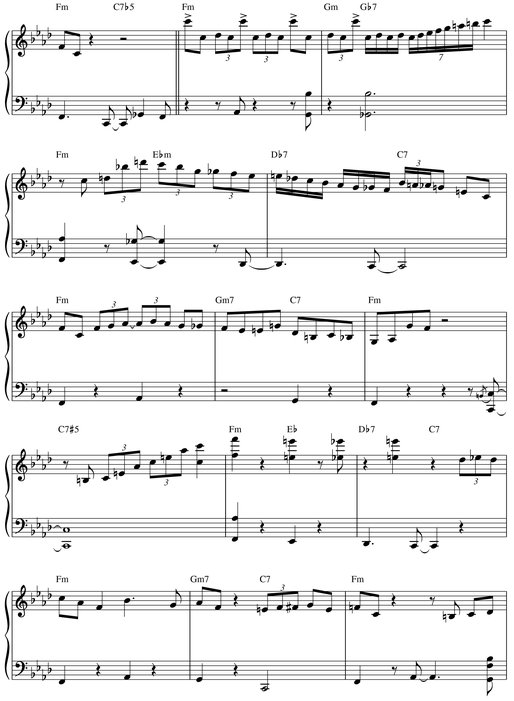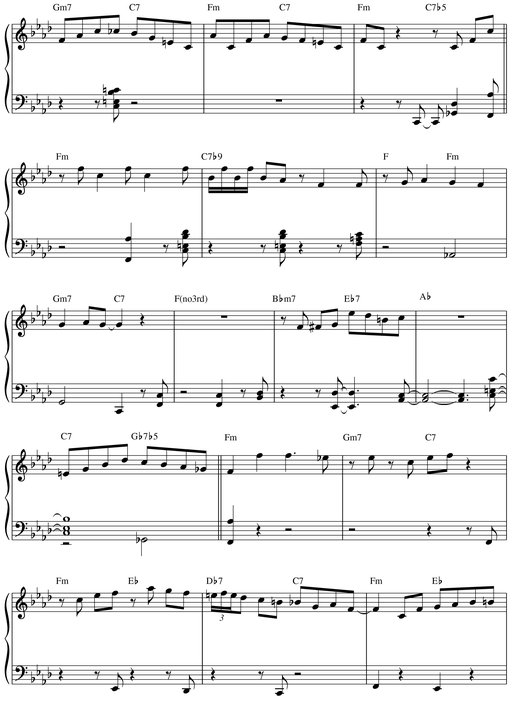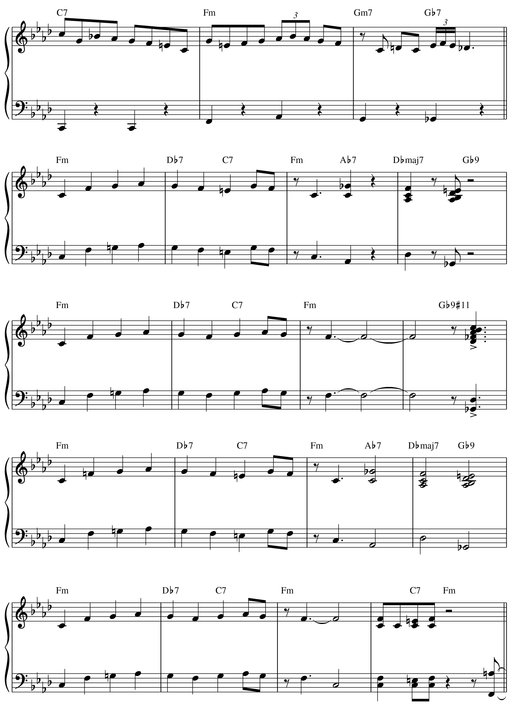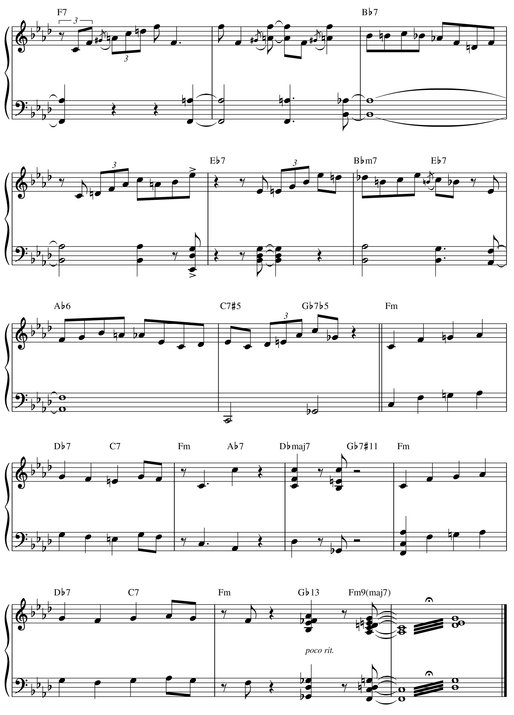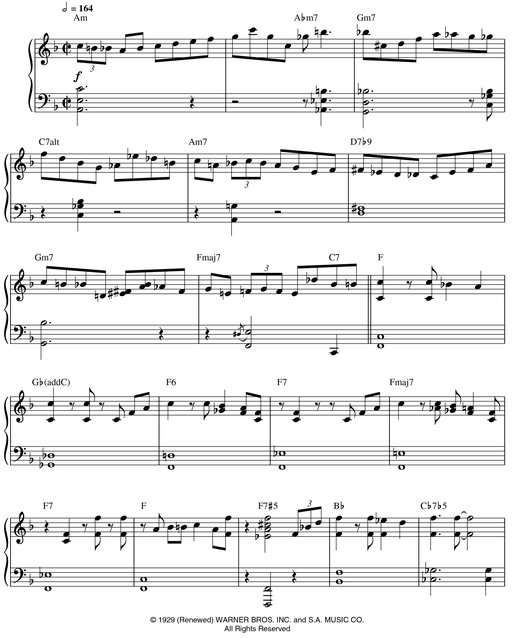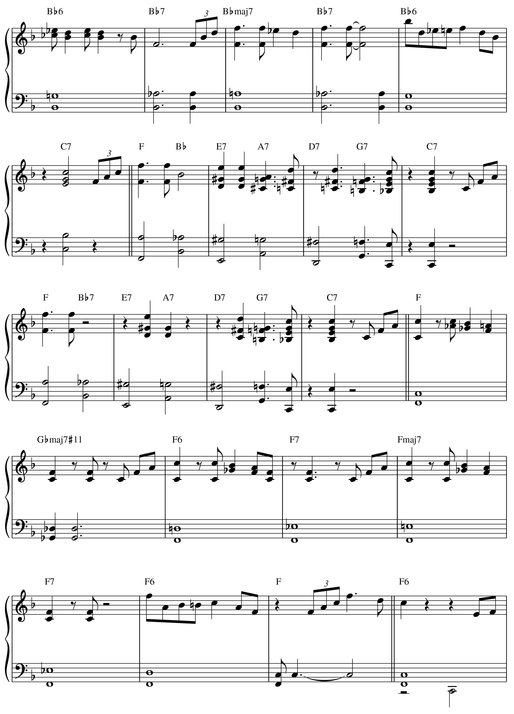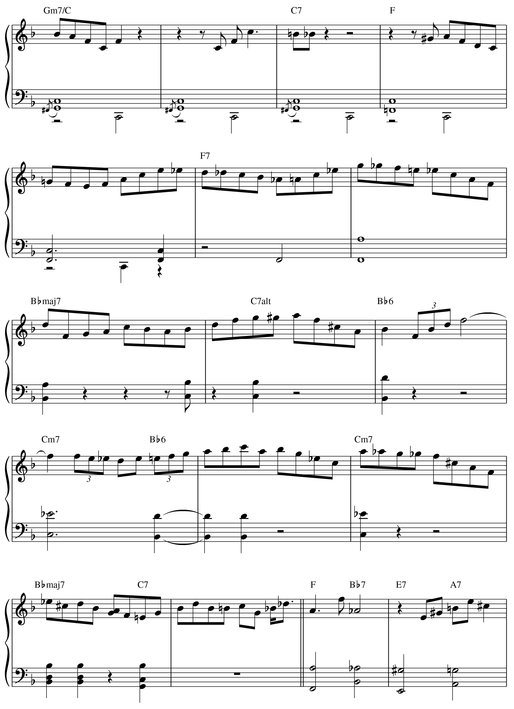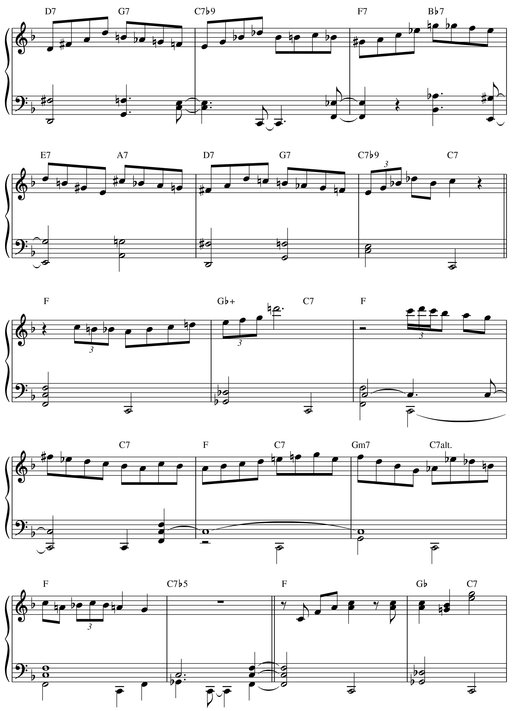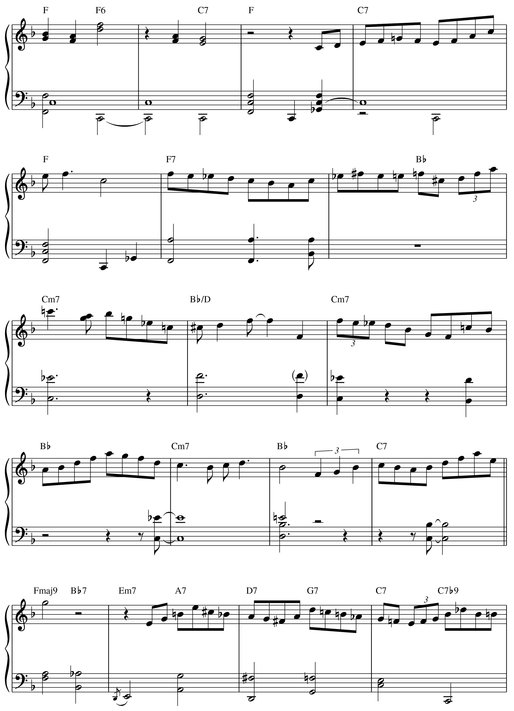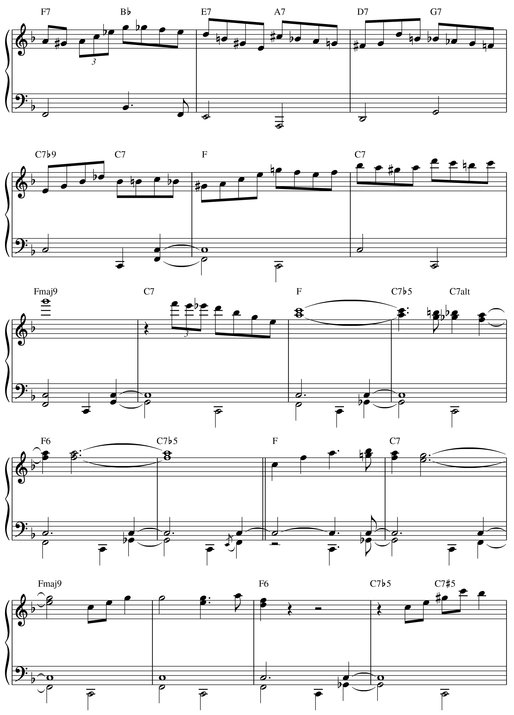Biography
Bud Powell was one of the finest pianists in jazz. He influenced nearly every pianist that came after him, and he influenced many non-pianists as well. His style of playing has been described as rapid melodic lines in the right hand punctuated by irregularly spaced, dissonant chords in the left. He was a gifted composer, and such pieces as Tempus Fugue-it, Webb City, Strictly Confidential, Parisian Thoroughfare, Oblivion and Un Poco Loco are still studied, performed and treasured by jazz musicians - students as well as seasoned professionals.
Earl Rudolph Powell was born in New York City on September 27, 1924. He was a child prodigy, studying classical piano by age five. By age ten he was performing classical repertoire publically and participating in local jam sessions.
At fifteen, Powell quit school to become a professional musician. He played jobs all over New York and jammed after hours at one of the birthplaces of bebop, Mintons Playhouse. At this time Powell met pianist Thelonious Monk, who soon began providing his challenging compositions for Powell to play.
By 1943, Powell was playing in trumpeter Cootie Williams big band and sextet; the next year he made his first recordings, also with Williams (who had become Powells guardian). In early 1945 Powell, after appearing one night with the sextet, was beaten over the head, mercilessly, by the police as they were arresting him for being drunk and disorderly. After his release from jail a few days later, he complained of headaches and, shortly afterwards, entered a psychiatric hospital for the first time. He returned to similar facilities at least a half dozen times in the next ten or so years.
During the late forties and early fifties, when Powell did perform with his trio, his playing was nothing short of incredible, as commercial and remote-broadcast recordings prove. Its unfortunate that, by the mid-fifties, his playing became quite erratic due to his problems with alcohol (it was thought that he took to drinking in the forties to deal with his terrible headaches), and his public appearances were sporadic.
By 1959 Powell moved to Paris. He remained there for five and a half years, playing for much of the time at the Blue Note nightclub with bassist Pierre Michelot and drummer Kenny Clarke. Powell played, on occasion, as he had in his heyday, and his fans treated him with great respect - though recognizing that he was past his prime.
By the middle of 1963, Powell had attracted a zealous French fan, a young commercial artist named Francis Paudras. When Paudras discovered that Powell had tuberculosis, he arranged for the pianists cure and for his return to New York and to Birdland, the scene of many dazzling Powell performances in the early fifties.
Powell was well received at first and lived up to his fans expectations. But his playing soon became erratic and the crowds initial enthusiasm waned. Powell had started drinking heavily again. After a few weeks the engagement was canceled. He played a few concerts after that but then grew indifferent about performing. His liver gave out, and he died on July 31, 1966.
But what counts is his legacy: thrilling music that continues to influence and instruct countless fans and musicians worldwide.
Peter Pullmans contributions to the textual portions of this folio were invaluable. Mr. Pullman is writing Bud Powells biography for Farrar, Straus and Giroux.
April in Paris
Words by E.Y. Harburg
Music by Vernon Duke
Danceland
By Earl Bud Powell
Get Happy
from SUMMER STOCK
Lyric by Ted Koehler
Music by Harold Arlen

